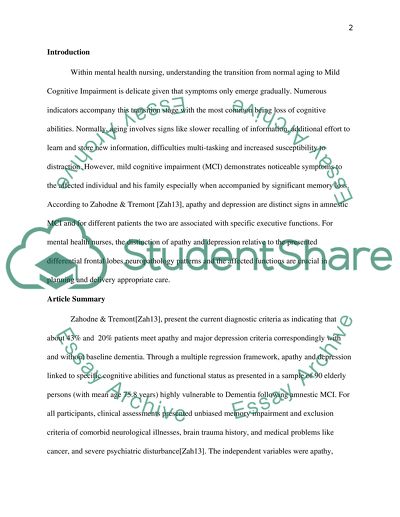Retrieved from https://studentshare.org/nursing/1653742-unique-effects-of-apathy-and-depression-signs-on-cognition-and-function-in-amnestic-mild-cognitive-impairment
https://studentshare.org/nursing/1653742-unique-effects-of-apathy-and-depression-signs-on-cognition-and-function-in-amnestic-mild-cognitive-impairment.


